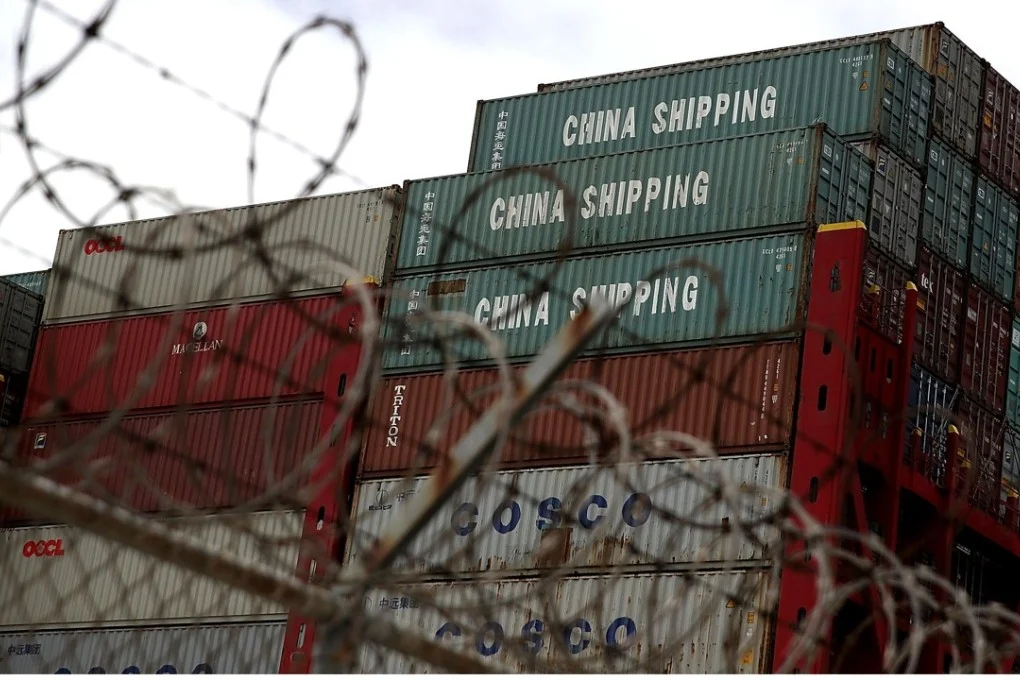In 2025, trade wars are causing a global economic slowdown, leading to severe supply chain disruptions, rising inflation rates, and declining employment rates. With increasing trade barriers and restrictive tariff policies, businesses face higher costs, impacting the manufacturing sector and shifting investment patterns. The Global Economic outlook remains uncertain as nations struggle with market volatility and weakened comparative advantage. Unless international relations improve, these economic challenges will continue to slow global growth. 🚨📊
Trade Wars 2025: A Global Economic Struggle!
In recent years, trade wars have become a dominant force shaping the global economy. What started as strategic policy measures to protect domestic industries has escalated into a worldwide economic slowdown. As 2025 unfolds, the effects of these trade disputes continue to impact global markets, causing inflationary pressures, supply chain disruptions, and reduced investment patterns.
This blog explores the ongoing trade wars, their consequences on global economic growth, and what the future holds for international relations. With expert insights, real-life examples, and an analysis of the manufacturing sector impact, we’ll uncover how tariff policies and trade barriers have led to market volatility and rising inflation rates.
Understanding Trade Wars and Their Impact on the Global Economy:
Trade wars occur when countries impose tariff policies, trade barriers, and other economic restrictions to protect their domestic markets. These policies often lead to retaliatory actions from affected nations, triggering economic uncertainty.
Key Drivers of Trade Wars:
Several factors contribute to the rise of trade wars:
- Protectionist Policies: Governments use tariffs and trade barriers to safeguard local businesses from foreign competition.
- Geopolitical Tensions: Diplomatic disagreements often spill over into economic policies, impacting global economic outlook.
- Trade Imbalances: Countries with significant trade deficits seek to reduce dependency on imports.
- National Security Concerns: Some nations impose restrictions on trade with countries perceived as economic or political threats.
While these measures may offer short-term advantages, they ultimately slow global growth by disrupting international trade relations.
📌 Why Do Trade Wars Happen?
- ✔ Economic Protectionism 🏦: Nations use tariff policies to shield domestic businesses.
- ✔ Geopolitical Tensions 🌍⚡: Countries use trade barriers as leverage in political conflicts.
- ✔ Trade Deficits 🔄: Governments attempt to reduce their dependence on imports.
- ✔ National Security 🔐: Some nations block trade with rivals for security reasons.
While the intention is to safeguard local industries, the long-term impact can be devastating to the global economic outlook 📉.
The Global Economic Slowdown in 2025: Key Consequences of Trade Wars!
1. Supply Chain Disruptions:
Trade barriers and tariffs have severely affected global supply chains. Many multinational corporations rely on international suppliers for raw materials and manufacturing. When these supply chains are disrupted, businesses face increased production costs and delays, leading to higher inflation rates.
🔹 Example: The semiconductor industry has been particularly affected. With the U.S. and China imposing tariffs on each other’s tech exports, the global electronics market has experienced severe shortages.
2. Rising Inflationary Pressures:
With restricted imports and increased production costs, inflationary pressures continue to mount. Tariff policies drive up the prices of essential goods, making life more expensive for consumers.
🔹 Example: In the U.S., tariffs on Chinese goods have led to higher costs for household products, automobiles, and consumer electronics, pushing inflation rates beyond projected levels.
3. Declining Employment Rates:
Trade restrictions often lead to job losses, especially in industries that rely on exports. As demand falls due to higher prices and reduced trade activity, companies cut jobs to manage costs.
🔹 Example: The European automobile industry has faced layoffs due to declining exports to Asian markets, causing increased unemployment rates across major economies.
4. Investment Patterns Are Shifting:
With increased uncertainty, businesses and investors are hesitant to commit to Long-Term Projects. Investment patterns have shifted towards safer assets, limiting capital availability for global expansion.
🔹 Example: In 2025, foreign direct investment (FDI) in developing economies has declined as investors seek stable markets in developed countries.
5. Manufacturing Sector Impact:
The manufacturing sector is one of the hardest-hit industries in the wake of global trade wars. With rising costs of raw materials and reduced international demand, manufacturers are struggling to maintain profitability.
🔹 Example: The steel and aluminum industries in the U.S. and Europe have seen a decline in production due to tariffs on imported metals.
How Market Volatility Affects Businesses and Consumers?
Market volatility has become a defining feature of the 2025 global economic landscape. With frequent policy changes and retaliatory tariffs, stock markets experience drastic fluctuations, making it difficult for businesses to plan long-term strategies.
Effects of Market Volatility:
- ✔ Uncertainty in financial markets: Investors face challenges in predicting future market trends.
- ✔ Higher borrowing costs: Central banks respond to inflationary pressures by increasing interest rates.
- ✔ Reduced consumer spending: Households cut back on non-essential expenses due to rising inflation rates.

Can Comparative Advantage Still Exist Amid Trade Wars?
Comparative advantage—the principle that nations benefit from specializing in industries where they are most efficient—is being undermined by trade barriers. Instead of leveraging their strengths, countries are shifting towards self-reliance, which can lead to inefficient resource allocation.
🔹 Example: The U.S.-China trade war has led both nations to develop domestic industries for semiconductors, despite one having a comparative advantage in production efficiency.
Future Global Economic Outlook: What Lies Ahead?
As trade wars persist, the global economic outlook remains uncertain. However, several strategies can mitigate the adverse effects:
- ✅ Negotiating Trade Agreements: Diplomatic efforts to reduce trade tensions can help stabilize global markets.
- ✅ Diversifying Supply Chains: Businesses must adapt by sourcing materials from multiple regions.
- ✅ Encouraging Sustainable Investment Patterns: Governments and investors should focus on resilient industries such as renewable energy and technology.
Will Trade Wars Continue to Hinder Global Growth?
While some nations may attempt to resolve trade disputes, the long-term impact of protectionist policies will continue to shape global trade. Countries must strike a balance between economic self-sufficiency and global collaboration to ensure sustainable growth.
Trade Wars 2025 Reshaping the Global Economy:
Trade wars have become a major force slowing global Economic Growth 📉 in 2025. With rising inflation rates, disrupted supply chains, and declining employment rates, the world economy faces significant hurdles. Market volatility, shifting investment patterns, and weakened comparative advantage only add to the challenge.
As we navigate 2025 and beyond, it is crucial to focus on sustainable solutions that foster international trade while protecting domestic interests. Only through strategic collaboration can we mitigate the negative effects of trade wars and restore global economic growth.

